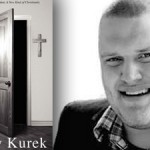I remember many years ago sitting before a committee of Presbyterian ministers and Doctors of theology. I was answering questions they were shooting at me. All this in preparation for ordination into the ministry. One of the questions was why was the church important. I answered:
- worship (corporate worship is necessary and only possible in the church)
- the Word (the preaching of the word, especially in the Reformed Tradition, is central)
- fellowship (this is where the people of God gather for prayerful support and loving service)
- the sacraments (Sunday mornings is where the sacraments of baptism and The Lord’s Supper is provided as means of grace, administered only by the elected and ordained teaching elders of the church, according to her tradition).
They were pleased with my answer and we moved on to the next question. I’ll be honest: I’m not so sure now. These are presently unconvincing to me as they are to the vast majority of people who are disenchanted with the church or have already left the building. Let’s look at the four again:
- We do have to admit that we can worship God in the privacy of our shower or on the rim of the Grand Canyon.
- We all know by now that we can teach and educate ourselves in the word and the ways of God. If you carry the Protestant impulse to the furthest degree this is necessarily where it takes us. Does it not?
- There is no command that we have to gather together, except for that one obscure verse in Hebrews that says “forsake not the assembling of yourselves together“. Fellowship with others can take place in a coffee shop or in your living room. And the earliest Christian documents show that there was no set time for the meetings or the frequency of them.
- The sacraments are problematic. How did baptism ever develop into a holy dispensation of grace? How did a meal become a means of receiving God’s mercy? Even historically I think we have serious problems tracing just these two events from what they might have been to what they’ve become today. If we think clearly, we must conclude that either everything is a means of grace or nothing is.
But let’s take it further. It’s not just the biblical, historical or theological issues that people have, but the integrity issues and the social and spiritual problems with the church that so many people struggle with. So let’s look at the four again:
- Often worship sucks. The music frequently makes no sense and often seems bubblegum, repetitious or naive. We often feel like we are being cajoled into feeling a certain way. We are singing some lyrics that we just don’t believe. And how are, say, 100 people expected to converge into one joint vibe? And I’ll tell you that IS the agenda of most of the worship gurus out there! I hate being forced. Period. And when people say they’ve felt closer to God and actually worshipful during a U2 or Radiohead concert, I believe them.
- Let’s admit it: there’s tons of bad theology out there. Is the word even being preached? The more silly and fantastical the more popular. The church is full of poor teachers of poor theology. We all know that within the church we all believe what we want, quietly dismiss what we don’t agree with and ignore what we don’t understand. We’ve all made up our own minds. It has been proven over and over again that we gravitate towards those teachers who confirm what we already know and what we already endorse.
- Fellowship with people we don’t like is unnatural and uncomfortable. But most of us can put up with it because we feel it is somehow necessary for peace on earth. What we cannot stand is fellowship with clergy, leaders and elders or deacons who clearly have an agenda that is harmful to our souls. We can sniff out spiritual violence a mile away and we are becoming less and less tolerant of it. It’s one thing to hang out with people and try to learn to love them. It’s another thing to feel like you are being herded in a certain direction that you know you aren’t interested in but in fact may be the gradual consigning of your soul over to the will of another.
- Just Google “sacraments” and see what a divisively magical mess you come up with! We’ve become totally suspicious of being told to believe that the church and its ministers is the vehicle for anything to do with our salvation. “The only way you can receive grace is from my hand or with this holy object.” We simply don’t believe it. “The details of your relationship with God must meet our approval.” We don’t accept it any longer. We love magic until we think we are being taken. The traditions of the church have, for the most part, proven ineffective, empty and meaningless. Just ask the next college or university student you see! And so many of us have been so seriously misused and abused by the church and its ministers that we can’t be blamed for not trusting it as an institution anymore.
I know this sounds rough. But this is the blunt truth. There’s no point, in my opinion, ignoring it hoping it will go away. This is the way many people think. I know not only because I talk with them, but because I am one! In the end I have to ask myself, “Why DO I go to church?” It can only be that I love these people. We are a totally diverse people gathered around a common person, the person of Jesus. And even that is under debate in my head and in our community because I somehow believe that this “Jesus” so embraces a universal comprehension of all things and all people, with no one excluded because of race, religion, sex or politic, that Jesus implodes to the point of disappearing, or, becoming the all in all. Only when this loosely held notion of unity in diversity is held in tension in a community of love can we tolerate, even with wit and a slightly ironic eye, the idea of corporate worship, communal learning, organized fellowship, and the traditions of the church.











